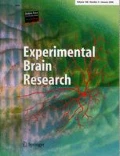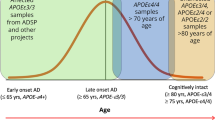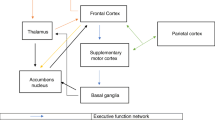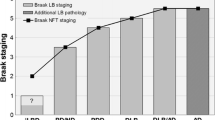Abstract
Recent genome-wide association studies (GWAS) of patient populations and genetic linkage assessments have demonstrated that the ankyrin-G (AnkG) gene is involved in neuropsychiatric disorders, including bipolar disorder, schizophrenia, and Alzheimer’s disease, but it remains unclear how the genetic variants of AnkG contribute to neuropsychiatric disorders. Here, we generated AnkG hemizygous mice using the gene trapping approach. Homozygous AnkG was embryonically lethal. Western blotting and real-time polymerase chain reaction (qPCR) assessments of wild type (WT) and AnkG +/− mutant mice demonstrated a 50% reduction of ANKG levels, at the gene and protein levels, in AnkG hemizygous mice. In behavioral tests, AnkG hemizygous mice exhibited elevated anxiety- and depression-like traits, as well as cognitive impairment. Moreover, the expression levels of cognitive-related proteins (including metabotropic glutamate receptor subtype-1, brain-derived neurotrophic factor, postsynaptic density-95, GABA-B receptor, and GABA-A receptor alpha-1) were significantly decreased (P < 0.05), suggesting a possible role for AnkG in cognition. It is possible that the loss of AnkG in the brain disrupts the excitation/inhibition balance of neurotransmitters, hindering the synaptic plasticity of neurons, and consequently leading to abnormal behavioral symptoms. Therefore, AnkG possibly contributes to neuroprotection and normal brain function, and may constitute a new target for treating neuropsychiatric diseases, especially cognitive dysfunction.







Similar content being viewed by others
References
Anisman H, Merali Z, Stead JD (2008) Experiential and genetic contributions to depressive- and anxiety-like disorders: clinical and experimental studies. Neurosci Biobehav Rev 32:1185–1206. doi:10.1016/j.neubiorev.2008.03.001
Basso AM, Bratcher NA, Harris RR, Jarvis MF, Decker MW, Rueter LE (2009) Behavioral profile of P2X7 receptor knockout mice in animal models of depression and anxiety: relevance for neuropsychiatric disorders. Behav Brain Res 198:83–90. doi:10.1016/j.bbr.2008.10.018
Baum AE et al (2008) A genome-wide association study implicates diacylglycerol kinase eta (DGKH) and several other genes in the etiology of bipolar disorder. Mol Psychiatry 13:197–207. doi:10.1038/sj.mp.4002012
Bennett V, Lambert S (1999) Physiological roles of axonal ankyrins in survival of premyelinated axons and localization of voltage-gated sodium channels. J Neurocytol 28:303–318
Binder DK, Scharfman HE (2004) Brain-derived neurotrophic factor. Growth Factors 22:123–131
Bourin M, Hascoet M (2003) The mouse light/dark box test. Eur J Pharmacol 463:55–65
Braw Y, Erez G, Sela T, Gvirts HZ, Hare EV, Bloch Y, Levkovitz Y (2013) A longitudinal study of cognition in asymptomatic and mildly symptomatic bipolar disorder patients. Psychiatry Res. doi:10.1016/j.psychres.2013.01.003
Briones TL, Woods J (2013) Chronic binge-like alcohol consumption in adolescence causes depression-like symptoms possibly mediated by the effects of BDNF on neurogenesis. Neuroscience 254:324–334. doi:10.1016/j.neuroscience.2013.09.031
Buitrago MM, Schulz JB, Dichgans J, Luft AR (2004) Short and long-term motor skill learning in an accelerated rotarod training paradigm. Neurobiol Learn Mem 81:211–216. doi:10.1016/j.nlm.2004.01.001
Chang EH et al (2006) AMPA receptor downscaling at the onset of Alzheimer’s disease pathology in double knockin mice. Proc Natl Acad Sci USA 103:3410–3415. doi:10.1073/pnas.0507313103
Chiu CT, Liu G, Leeds P, Chuang DM (2011) Combined treatment with the mood stabilizers lithium and valproate produces multiple beneficial effects in transgenic mouse models of Huntington’s disease. Neuropsychopharmacology 36:2406–2421. doi:10.1038/npp.2011.128
Chourbaji S et al (2008) AMPA receptor subunit 1 (GluR-A) knockout mice model the glutamate hypothesis of depression. FASEB J 22:3129–3134. doi:10.1096/fj.08-106450
Cryan JF, Kaupmann K (2005) Don’t worry ‘B; happy!: a role for GABA(B) receptors in anxiety and depression. Trends Pharmacol Sci 26:36–43. doi:10.1016/j.tips.2004.11.004
Dao DT et al (2010) Mood disorder susceptibility gene CACNA1C modifies mood-related behaviors in mice and interacts with sex to influence behavior in mice and diagnosis in humans. Biol Psychiatry 68:801–810. doi:10.1016/j.biopsych.2010.06.019
El Yacoubi M, Rappeneau V, Champion E, Malleret G, Vaugeois JM (2013) The H/Rouen mouse model displays depression-like and anxiety-like behaviors. Behav Brain Res 256:43–50. doi:10.1016/j.bbr.2013.07.048
Ferreira MA et al (2008) Collaborative genome-wide association analysis supports a role for ANK3 and CACNA1C in bipolar disorder. Nat Genet 40:1056–1058. doi:10.1038/ng.209
Feyder M, Wiedholz L, Sprengel R, Holmes A (2007) Impaired associative fear learning in mice with complete loss or haploinsufficiency of AMPA GluR1 receptors. Front Behav Neurosci 1:4. doi:10.3389/neuro.08.004.2007
Frey BN, Martins MR, Petronilho FC, Dal-Pizzol F, Quevedo J, Kapczinski F (2006) Increased oxidative stress after repeated amphetamine exposure: possible relevance as a model of mania. Bipolar Disord 8:275–280. doi:10.1111/j.1399-5618.2006.00318.x
Gella A, Segura M, Durany N, Pfuhlmann B, Stober G, Gawlik M (2011) Is ankyrin a genetic risk factor for psychiatric phenotypes? BMC Psychiatry 11:103. doi:10.1186/1471-244X-11-103
Gildengers AG et al (2012) Cognition in older adults with bipolar disorder versus major depressive disorder. Bipolar Disord 14:198–205. doi:10.1111/j.1399-5618.2012.00995.x
Guan H, Maness PF (2010) Perisomatic GABAergic innervation in prefrontal cortex is regulated by ankyrin interaction with the L1 cell adhesion molecule. Cereb Cortex 20:2684–2693. doi:10.1093/cercor/bhq016
Hashimoto K (2009) Emerging role of glutamate in the pathophysiology of major depressive disorder. Brain Res Rev 61:105–123. doi:10.1016/j.brainresrev.2009.05.005
Hashimoto K, Sawa A, Iyo M (2007) Increased levels of glutamate in brains from patients with mood disorders. Biol Psychiatry 62:1310–1316. doi:10.1016/j.biopsych.2007.03.017
Jakala P, Sirvio J, Jolkkonen J, Riekkinen P Jr, Acsady L, Riekkinen P (1992) The effects of p-chlorophenylalanine-induced serotonin synthesis inhibition and muscarinic blockade on the performance of rats in a 5-choice serial reaction time task. Behav Brain Res 51:29–40
Jones NC, Salzberg MR, Kumar G, Couper A, Morris MJ, O’Brien TJ (2008) Elevated anxiety and depressive-like behavior in a rat model of genetic generalized epilepsy suggesting common causation. Exp Neurol 209:254–260. doi:10.1016/j.expneurol.2007.09.026
Kessing LV, Andersen PK (2004) Does the risk of developing dementia increase with the number of episodes in patients with depressive disorder and in patients with bipolar disorder? J Neurol Neurosurg Psychiatry 75:1662–1666. doi:10.1136/jnnp.2003.031773
Klumpers UM et al (2010) Reduced parahippocampal and lateral temporal GABAA-[11C]flumazenil binding in major depression: preliminary results. Eur J Nuclear Med Mol Imaging 37:565–574. doi:10.1007/s00259-009-1292-9
Kordeli E, Lambert S, Bennett V (1995) AnkyrinG. A new ankyrin gene with neural-specific isoforms localized at the axonal initial segment and node of Ranvier. J Biol Chem 270:2352–2359
Kretschmer T, Nguyen DH, Beuerman RW, Tiel RL, Kline DG (2004) Elevated ankyrin G in a plexiform neurofibroma and neuromas associated with pain. J Clin Neurosci 11:886–889. doi:10.1016/j.jocn.2003.09.023
Kumar K, Sharma S, Kumar P, Deshmukh R (2013) Therapeutic potential of GABA(B) receptor ligands in drug addiction, anxiety, depression and other CNS disorders. Pharmacol Biochem Behav 110:174–184. doi:10.1016/j.pbb.2013.07.003
Leibrock C, Ackermann TF, Hierlmeier M, Lang F, Borgwardt S, Lang UE (2013) Akt2 deficiency is associated with anxiety and depressive behavior in mice. Cell Physiol Biochem 32:766–777. doi:10.1159/000354478
Lessmann V, Gottmann K, Heumann R (1994) BDNF and NT-4/5 enhance glutamatergic synaptic transmission in cultured hippocampal neurons. NeuroReport 6:21–25
Leussis MP et al (2013) The ANK3 bipolar disorder gene regulates psychiatric-related behaviors that are modulated by lithium and stress. Biol Psychiat 73:683–690. doi:10.1016/j.biopsych.2012.10.016
Li X, Tizzano JP, Griffey K, Clay M, Lindstrom T, Skolnick P (2001) Antidepressant-like actions of an AMPA receptor potentiator (LY392098). Neuropharmacology 40:1028–1033
Luscher B, Shen Q, Sahir N (2011) The GABAergic deficit hypothesis of major depressive disorder. Mol Psychiatry 16:383–406. doi:10.1038/mp.2010.120
Migaud M et al (1998) Enhanced long-term potentiation and impaired learning in mice with mutant postsynaptic density-95 protein. Nature 396:433–439. doi:10.1038/24790
Miller BH, Wahlestedt C (2010) MicroRNA dysregulation in psychiatric disease Brain research 1338:89–99. doi:10.1016/j.brainres.2010.03.035
Mohler H (2012) The GABA system in anxiety and depression and its therapeutic potential. Neuropharmacology 62:42–53. doi:10.1016/j.neuropharm.2011.08.040
Mombereau C, Kaupmann K, Froestl W, Sansig G, van der Putten H, Cryan JF (2004) Genetic and pharmacological evidence of a role for GABA(B) receptors in the modulation of anxiety- and antidepressant-like behavior. Neuropsychopharmacology 29:1050–1062. doi:10.1038/sj.npp.1300413
Mombereau C, Kaupmann K, Gassmann M, Bettler B, van der Putten H, Cryan JF (2005) Altered anxiety and depression-related behaviour in mice lacking GABAB(2) receptor subunits. NeuroReport 16:307–310
Morgan AR et al (2008) Association analysis of 528 intra-genic SNPs in a region of chromosome 10 linked to late onset Alzheimer’s disease. Am J Med Genet Part B Neuropsychiatr Genet 147B:727–731. doi:10.1002/ajmg.b.30670
Murphy CA, Di Iorio L, Feldon J (2001) Effects of psychostimulant withdrawal on latent inhibition of conditioned active avoidance and prepulse inhibition of the acoustic startle response. Psychopharmacology 156:155–164
Myers A et al (2000) Susceptibility locus for Alzheimer’s disease on chromosome 10. Science 290:2304–2305. doi:10.1126/science.290.5500.2304
Nanavati D et al (2011) The effects of chronic treatment with mood stabilizers on the rat hippocampal post-synaptic density proteome. J Neurochem 119:617–629. doi:10.1111/j.1471-4159.2011.07424.x
Nestler EJ, Hyman SE (2010) Animal models of neuropsychiatric disorders. Nat Neurosci 13:1161–1169. doi:10.1038/nn.2647
Nestler EJ, Barrot M, DiLeone RJ, Eisch AJ, Gold SJ, Monteggia LM (2002) Neurobiology of depression. Neuron 34:13–25
Ng WX, Lau IY, Graham S, Sim K (2009) Neurobiological evidence for thalamic, hippocampal and related glutamatergic abnormalities in bipolar disorder: a review and synthesis. Neurosci Biobehav Rev 33:336–354. doi:10.1016/j.neubiorev.2008.10.001
Ostrovskaya O, Xie K, Masuho I, Fajardoserrano A, Lujan R, Wickman K, Martemyanov KA (2014) RGS7/Gβ5/R7BP complex regulates synaptic plasticity and memory by modulating hippocampal GABABR-GIRK signaling. Elife Sci 3:e02053–e02053
Paez-Gonzalez P et al (2011) Ank3-dependent SVZ niche assembly is required for the continued production of new neurons. Neuron 71:61–75. doi:10.1016/j.neuron.2011.05.029
Park H, Poo MM (2013) Neurotrophin regulation of neural circuit development and function. Nat Rev Neurosci 14:7–23. doi:10.1038/nrn3379
Peleg-Raibstein D, Yee BK, Feldon J, Hauser J (2009) The amphetamine sensitization model of schizophrenia: relevance beyond psychotic symptoms? Psychopharmacology 206:603–621. doi:10.1007/s00213-009-1514-7
Petit-Demouliere B, Chenu F, Bourin M (2005) Forced swimming test in mice: a review of antidepressant activity. Psychopharmacology 177:245–255. doi:10.1007/s00213-004-2048-7
Porsolt RD, Bertin A, Jalfre M (1977) Behavioral despair in mice: a primary screening test for antidepressants. Arch Int de Pharmacodyn et de Ther 229:327–336
Psychiatric GCBDWG (2011) Large-scale genome-wide association analysis of bipolar disorder identifies a new susceptibility locus near ODZ4. Nat Genet 43:977–983. doi:10.1038/ng.943
Qin X, Jiang Y, Tse YC, Wang Y, Wong TP, Paudel HK (2015) Early growth response 1 (Egr-1) regulates N-methyl-d-aspartate receptor (NMDAR)-dependent transcription of PSD-95 and alpha-Amino-3-hydroxy-5-methyl-4-isoxazole propionic acid receptor (AMPAR) trafficking in hippocampal primary neurons. J Biol Chem 290:29603–29616. doi:10.1074/jbc.M115.668889
Resende WR et al (2013) Effects of sodium butyrate in animal models of mania and depression: implications as a new mood stabilizer. Behav Pharmacol. doi:10.1097/FBP.0b013e32836546fc
Roselli F et al (2005) Soluble beta-amyloid1-40 induces NMDA-dependent degradation of postsynaptic density-95 at glutamatergic synapses. J Neurosci 25:11061–11070. doi:10.1523/JNEUROSCI.3034-05.2005
Rudolph U, Mohler H (2014) GABAA receptor subtypes: therapeutic potential in Down syndrome, affective disorders, schizophrenia, and autism. Annu Rev Pharmacol Toxicol 54:483–507. doi:10.1146/annurev-pharmtox-011613-135947
Santuccione AC et al (2013) Active vaccination with ankyrin G reduces beta-amyloid pathology in APP transgenic mice. Mol Psychiatry 18:358–368. doi:10.1038/mp.2012.70
Schizophrenia Psychiatric Genome-Wide Association Study C (2011) Genome-wide association study identifies five new schizophrenia loci. Nat Genet 43:969–976. doi:10.1038/ng.940
Schneider T, Turczak J, Przewlocki R (2006) Environmental enrichment reverses behavioral alterations in rats prenatally exposed to valproic acid: issues for a therapeutic approach in autism. Neuropsychopharmacology 31:36–46. doi:10.1038/sj.npp.1300767
Schouws SN, Stek ML, Comijs HC, Dols A, Beekman AT (2012) Cognitive decline in elderly bipolar disorder patients: a follow-up study. Bipolar Disord 14:749–755. doi:10.1111/bdi.12000
Shirayama Y, Chen AC, Nakagawa S, Russell DS, Duman RS (2002) Brain-derived neurotrophic factor produces antidepressant effects in behavioral models of depression. J Neurosci 22:3251–3261
Skorzewska A, Lehner M, Wislowska-Stanek A, Krzascik P, Ziemba A, Plaznik A (2013) The effect of chronic administration of corticosterone on anxiety- and depression-like behavior and the expression of GABA-A receptor alpha-2 subunits in brain structures of low- and high-anxiety rats. Horm Behav. doi:10.1016/j.yhbeh.2013.10.011
Smith SS (2013) The influence of stress at puberty on mood and learning: role of the alpha(4)betadelta GABAA receptor. Neuroscience 249:192–213. doi:10.1016/j.neuroscience.2012.09.065
Smith KR et al (2014) Psychiatric risk factor ANK3/ankyrin-G nanodomains regulate the structure and function of glutamatergic synapses. Neuron 84:399–415. doi:10.1016/j.neuron.2014.10.010
Sobotzik JM, Sie JM, Politi C, Del Turco D, Bennett V, Deller T, Schultz C (2009) AnkyrinG is required to maintain axo-dendritic polarity in vivo. Proc Natl Acad Sci USA 106:17564–17569. doi:10.1073/pnas.0909267106
Sultana R, Banks WA, Butterfield DA (2010) Decreased levels of PSD95 and two associated proteins and increased levels of BCl2 and caspase 3 in hippocampus from subjects with amnestic mild cognitive impairment: insights into their potential roles for loss of synapses and memory, accumulation of Abeta, and neurodegeneration in a prodromal stage of Alzheimer’s disease. J Neurosci Res 88:469–477. doi:10.1002/jnr.22227
Sun X, Wu Y, Gu M, Zhang Y (2014) miR-342-5p decreases ankyrin G levels in Alzheimer’s disease transgenic mouse models. Cell Rep 6:264–270. doi:10.1016/j.celrep.2013.12.028
Thomas AJ, O’Brien JT (2008) Depression and cognition in older adults. Curr Opin Psychiatry 21:8–13. doi:10.1097/YCO.0b013e3282f2139b
Tseng WC, Jenkins PM, Tanaka M, Mooney R, Bennett V (2015) Giant ankyrin-G stabilizes somatodendritic GABAergic synapses through opposing endocytosis of GABAA receptors. Proc Natl Acad Sci USA 112:1214–1219. doi:10.1073/pnas.1417989112
Veeraiah P et al (2014) Dysfunctional glutamatergic and gamma-aminobutyric acidergic activities in prefrontal cortex of mice in social defeat model of depression. Biol Psychiatry 76:231–238. doi:10.1016/j.biopsych.2013.09.024
Vollenweider I, Smith KS, Keist R, Rudolph U (2011) Antidepressant-like properties of alpha2-containing GABA(A) receptors. Behav Brain Res 217:77–80. doi:10.1016/j.bbr.2010.10.009
Yamada K, Nabeshima T (2003) Brain-derived neurotrophic factor/TrkB signaling in memory processes. J Pharmacol Sci 91:267–270
Yamada K, Watanabe A, Iwayama-Shigeno Y, Yoshikawa T (2003) Evidence of association between gamma-aminobutyric acid type A receptor genes located on 5q34 and female patients with mood disorders. Neurosci Lett 349:9–12
Yao ZG et al (2013) The effect of PN-1, a traditional Chinese prescription, on the learning and memory in a transgenic mouse model of Alzheimer’s disease. Evid Based Complement Altern Med 2013:518421. doi:10.1155/2013/518421
Zarate CA Jr, Manji HK (2008) The role of AMPA receptor modulation in the treatment of neuropsychiatric diseases. Exp Neurol 211:7–10. doi:10.1016/j.expneurol.2008.01.011
Zhang X, Bennett V (1998) Restriction of 480/270-kD ankyrin G to axon proximal segments requires multiple ankyrin G-specific domains. J Cell Biol 142:1571–1581
Zhang L et al (2014) Tubastatin A/ACY-1215 improves cognition in Alzheimer’s disease transgenic mice. J Alzheimer’s Dis 41:1193–1205. doi:10.3233/JAD-140066
Zhou D, Lambert S, Malen PL, Carpenter S, Boland LM, Bennett V (1998) AnkyrinG is required for clustering of voltage-gated Na channels at axon initial segments and for normal action potential firing. J Cell Biol 143:1295–1304
Acknowledgements
This work was supported by the Doctorial Innovation Fund of Peking Union Medical College (2012-1001-003).
Author information
Authors and Affiliations
Corresponding author
Ethics declarations
Funding
This work was supported by the Doctorial Innovation Fund of Peking Union Medical College (2012-1001-003).
Conflict of interest
None of the authors declares a conflict of interest.
Ethical approval
The study protocol was approved by the Institutional Animal Care and Use Committee of the Institute of Laboratory Animal Science (Permit Number: ILAS-PLP2012-004). All experiments followed the standards for laboratory animal welfare.
Electronic supplementary material
Below is the link to the electronic supplementary material.
Rights and permissions
About this article
Cite this article
Liu, C., Zhang, L., Wu, J. et al. AnkG hemizygous mice present cognitive impairment and elevated anxiety/depressive-like traits associated with decreased expression of GABA receptors and postsynaptic density protein. Exp Brain Res 235, 3375–3390 (2017). https://doi.org/10.1007/s00221-017-5056-7
Received:
Accepted:
Published:
Issue Date:
DOI: https://doi.org/10.1007/s00221-017-5056-7




